36 Arguments for the Existence of God - [44]
“‘ “Now there is one place where perhaps it would be indelicate to take a Mississippian,” Verena said, after this episode. “I mean the great place that towers above the others-that big building with the beautiful pinnacles which you see from every point.” But Basil Ransom had heard of the great Memorial Hall; he knew what memories it enshrined, and the worst that he should have to suffer there; and the ornate, overtopping structure, which was the finest piece of architecture he had ever seen, had moreover solicited his enlarged curiosity for the last half hour. He thought there was rather too much brick about it, but it was buttressed, cloistered, turreted, dedicated, superscribed, as he had never seen anything; though it didn’t look old, it looked significant, it covered a large area, and it sprang majestic into the winter air. It was detached from the rest of the collegiate groups, and it stood in a grassy triangle of its own.’ I skip a few paragraphs now, for I have taught long and must wonder myself at how I am managing to persevere. I shall conclude with this: ‘The effect of the place is singularly noble and solemn, and it is impossible to feel it without a lifting of the heart.’ The expatriated Henry James, who, returning to his native shores, finds much to strike him as tawdry, inferior, and small, is being ironical, of course. But the Jamesian irony negates the negation into contrapuntal affirmation. You, too, shall, I rather think, find contrapuntal affirmation within the bombastic Ruskinian Gothic extravaganza of Memorial Hall, as, too, within the quieter interior of its Sanders Theatre.”
After hearing Memorial Hall so brilliantly described, Cass felt stupid that he hadn’t been able to find it. He kept passing it by, thinking it was a church. He was misled, too, by its no longer sitting on a grassy triangle, separated from the collegiate groups. The university had grown up around it. By the time he finally figured out what a bombastic Ruskinian Gothic extravaganza looked like, and located Sanders Theatre within it, there were no more seats to be had in the vast interior.
The theater fanned out from the stage, and he was just able to squeeze himself onto a cold stone bench that was inside the entrance and up against a wall. A couple of moments later, a tall girl in dreadlocks entered and asked if she could squeeze in beside him. Somehow they managed.
“Did I miss anything?” she whispered.
“I don’t think so. I just got here myself,” he whispered back.
There was a chain of introducers, a Harvard faculty member introducing a Harvard dean who introduced another Harvard faculty member who finally introduced Jonas Elijah Klapper.
“Big fleas have little fleas upon their backs to bite them, and little fleas have lesser fleas, and so on ad infinitum,” Cass’s neighbor whispered.
He was worried that she was going to be a problem. First of all, she was almost in his lap, which was distracting. Second, she was one of those people who consider attendance at a lecture a participatory sport. Cass preferred, under any circumstances, less activist lecture neighbors. And this was Jonas Elijah Klapper’s Prufrock Lecture! He needed to concentrate.
“Professor Klapper was for many years referred to as the ‘Sage of Morningside Heights.’ New York’s loss is our gain, and I take this opportunity to formally rechristen him the ‘Wise Man of Weedham.’ And now, without any further ado, I give you the Extreme Distinguished Professor of Faith, Literature, and Values at Frankfurter University, Jonas Elijah Klapper, who will enlighten us all tonight on the subject of ‘The Eternity of Irony: The Messianic Ideal, 750 B.C.E. to 1987 C.E.’”
Cass gasped aloud, so that the girl sitting next to him gave him a quizzical look.
“It’s ‘The Irony of Eternity,’” he told her, because that was the correct title of Professor Klapper’s talk. But the girl thought Cass was making a joke and dissolved into giggles, which were fortunately drowned out by applause as Professor Klapper mounted the stage. Klapper kept his eyes cast down, his expression inscrutable, as if determined to let the acclaim make its way around him unheeded. A great man, thought Cass, swelling with an overpowering emotion, a joy splanchnic (that is from one’s inner parts, from the Greek for “organ;” Cass’s vocabulary had been undergoing a rapid expansion, pari passu with his soul’s-“pari passu” was new, too).
“I thank you for that introduction. I shall indeed essay to live up to the sobriquet of the Wise Man of Weedham, so eloquently bestowed upon me by Professor Knudsen, who is our premier guide through the thickets of Norwegian folk tales.
“I must, embarrassingly enough, begin with an emendation in regard to the title of my lecture tonight,” and Cass turned to the girl beside him and gave her a vigorous nod. “I must add to the span of years I shall traverse a full millennium. Should I have said that we must travel backward in time to 1750 B.C.E. I feared you might have thought the task too daunting.”

В книге рассказывается история главного героя, который сталкивается с различными проблемами и препятствиями на протяжении всего своего путешествия. По пути он встречает множество второстепенных персонажей, которые играют важные роли в истории. Благодаря опыту главного героя книга исследует такие темы, как любовь, потеря, надежда и стойкость. По мере того, как главный герой преодолевает свои трудности, он усваивает ценные уроки жизни и растет как личность.
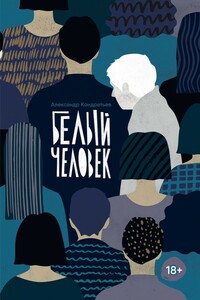
В городе появляется новое лицо: загадочный белый человек. Пейл Арсин — альбинос. Люди относятся к нему настороженно. Его появление совпадает с убийством девочки. В Приюте уже много лет не происходило ничего подобного, и Пейлу нужно убедить целый город, что цвет волос и кожи не делает человека преступником. Роман «Белый человек» — история о толерантности, отношении к меньшинствам и социальной справедливости. Категорически не рекомендуется впечатлительным читателям и любителям счастливых финалов.
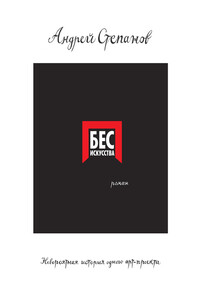
Кто продал искромсанный холст за три миллиона фунтов? Кто использовал мертвых зайцев и живых койотов в качестве материала для своих перформансов? Кто нарушил покой жителей уральского города, устроив у них под окнами новую культурную столицу России? Не знаете? Послушайте, да вы вообще ничего не знаете о современном искусстве! Эта книга даст вам возможность ликвидировать столь досадный пробел. Титанические аферы, шизофренические проекты, картины ада, а также блестящая лекция о том, куда же за сто лет приплыл пароход современности, – в сатирической дьяволиаде, написанной очень серьезным профессором-филологом. А началось все с того, что ясным мартовским утром 2009 года в тихий город Прыжовск прибыл голубоглазый галерист Кондрат Евсеевич Синькин, а за ним потянулись и лучшие силы актуального искусства.
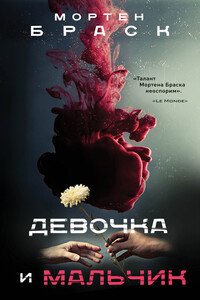
Семейная драма, написанная жестко, откровенно, безвыходно, заставляющая вспомнить кинематограф Бергмана. Мужчина слишком молод и занимается карьерой, а женщина отчаянно хочет детей и уже томится этим желанием, уже разрушает их союз. Наконец любимый решается: боится потерять ее. И когда всё (но совсем непросто) получается, рождаются близнецы – раньше срока. Жизнь семьи, полная напряженного ожидания и измученных надежд, продолжается в больнице. Пока не случается страшное… Это пронзительная и откровенная книга о счастье – и бесконечности боли, и неотменимости вины.
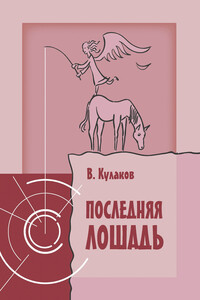
Книга, которую вы держите в руках – о Любви, о величии человеческого духа, о самоотверженности в минуту опасности и о многом другом, что реально существует в нашей жизни. Читателей ждёт встреча с удивительным миром цирка, его жизнью, людьми, бытом. Писатель использовал рисунки с натуры. Здесь нет выдумки, а если и есть, то совсем немного. «Последняя лошадь» является своеобразным продолжением ранее написанной повести «Сердце в опилках». Действие происходит в конце восьмидесятых годов прошлого столетия. Основными героями повествования снова будут Пашка Жарких, Валентина, Захарыч и другие.
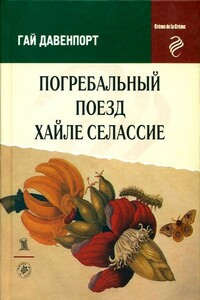
В литературной культуре, недостаточно знающей собственное прошлое, переполненной банальными и затертыми представлениями, чрезмерно увлеченной неосмысленным настоящим, отважная оригинальность Давенпорта, его эрудиция и историческое воображение неизменно поражают и вдохновляют. Washington Post Рассказы Давенпорта, полные интеллектуальных и эротичных, скрытых и явных поворотов, блистают, точно солнце в ветреный безоблачный день. New York Times Он проклинает прогресс и защищает пользу вечного возвращения со страстью, напоминающей Борхеса… Экзотично, эротично, потрясающе! Los Angeles Times Деликатесы Давенпорта — изысканные, элегантные, нежные — редчайшего типа: это произведения, не имеющие никаких аналогов. Village Voice.